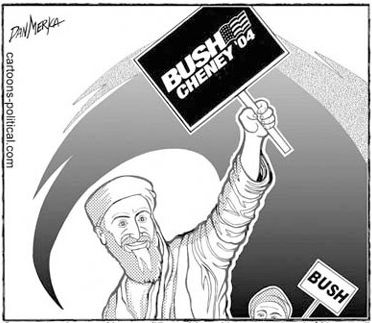|
||||
|
|
|
|||
| Home | Subscribe | Back Issues | The Organization | Volunteer | ||||
|
||||
Next Steps after the 2004 Electionsby Steven HilComing down the home stretch, the push was on to re-defeat George W. Bush. Everyone from the Democratic Party, labor unions, philanthropic foundations, 527s, pragmatic Greens, progressive media, and George Soros were rallying behind the Kerry-Edwards ticket. But what are the plans beyond the November 2004 election? Allow me to point toward some badly needed direction. The results of the November election do not change the fact that representative democracy in the United States is severely broken. It's gotten so bad that even the New York Times and Wall Street Journal have made the case for overhaul of key institutions and practices. Unless American democracy is remade in fundamental ways, progressives can forget about enacting much of the usual laundry list of desired changes in foreign policy, health care, corporate regulation, labor laws, the environment, media and civil liberties. A functioning democracy is a prerequisite to having an economic system that works for everyone instead of just the rich and powerful. Usually, so much of the well-intentioned progressive effort seems scattered. The challenge is: can we imagine a common vision that lasts? In my mind, such a common vision must have at the forefront the remaking of our broken democracy. "Democracy" and "representative government" are not just fuzzy, feel-good terms--they involve precise institutions and practices, and we know a good bit now about which of those institutions and practices are best, particularly for enacting a more progressive agenda. They include public financing of elections, free media time for candidates, full (proportional) representation for legislatures, instant runoff voting for executive offices, overhaul of the unrepresentative US Senate, abolition of the Electoral College, universal voter registration, fair ballot access laws, inclusive political debates, a national elections commission to develop fair and efficient election administration, and a right to vote constitutional amendment. We also need a more robust public broadcasting sector funded by consumer fees (like consumers pay for cable TV) instead of by a fickle Congress. Let's call this the Democracy USA agenda, and sure, it's an ambitious one--but we will never significantly impact the broader social, economic and foreign policy agenda until we change the rules of the game that are blocking progress. In other words, until we remove the boulders in the road, there will be no passage. The Democracy USA agenda is what will remove the boulders. Even in advance of the election, publications like The Nation and others were featuring articles by progressive leaders asking "what's next" after November. Conspicuously missing from their vision is a stirring call for remaking our democracy. I've spoken with many of these leaders, and too many of them find these systemic barriers to be bothersome inconveniences into which they are not going to invest much time or resources. That's troubling, because that attitude will lead progressives down still more dead ends. For instance, most of these progressive and Democratic Party leaders do not want to deal with the fact that the antiquated 18th-century methods we use to elect the President, the US Senate, and the US House favor Republican and conservative candidates over Democratic and liberal/progressive candidates due to built-in, systemic reasons. It's like having a foot race where Democrats and progressives start out ten paces behind Republicans and conservatives, election after election. The presidency and the Senate are skewed because they give more representation per capita to low population states, which today are mostly the conservative states of Bush's Republican America. This has real-world impact on national policy and federal tax appropriations, with Republican America receiving more in federal taxes than they pay out, even as they gripe about big government and welfare cheats. 
The House is skewed because the Democratic vote has become highly urbanized and can be packed into fewer districts. The fact is, when the national vote is tied (or even when the Democrats have more votes, like Gore did in 2000), the Republicans win more House seats than Democrats. Democrats and progressives will make little progress on the broader national agenda until we address these barriers that affect all three branches of the federal government (since the conservative Senate confirms conservative Supreme Court and lower court judges). After the November election, progressive activists, leaders, funders, Democrats and non-Democrats must now become focused on enacting the Democracy USA agenda. The Democrats should do this because, not only is it in their self-interest since current methods favor Republicans/conservatives, but also because making our democracy more fair is the right thing to do. In other words, at this point, what is fair and right FAVORS the Democratic Party. New Democratic Party leaders like Barack Obama seem to be more open to these ideas, as are Howard Dean, Congressmen Jesse Jackson Jr., Dennis Kucinich and others. Let's hope they are the future of the party, because now is the time to push the Democracy USA agenda out there boldly. The overhaul of our democracy is the pressing issue of our times. It is a steep hill to climb, but climb it we must, there is no other choice. Without more focused attention on the Democracy USA agenda, progressive ideas and policies will continue to languish near the sidelines of American politics, rather than the center. Steven Hill is senior analyst for the Washington DC-based Center for Voting and Democracy (www.fairvote.org), and author of Fixing Elections: The Failure of America's Winner Take All Politics (www.FixingElections.com). He was campaign manager in San Francisco for the recently successful campaign for instant runoff voting. |
|
